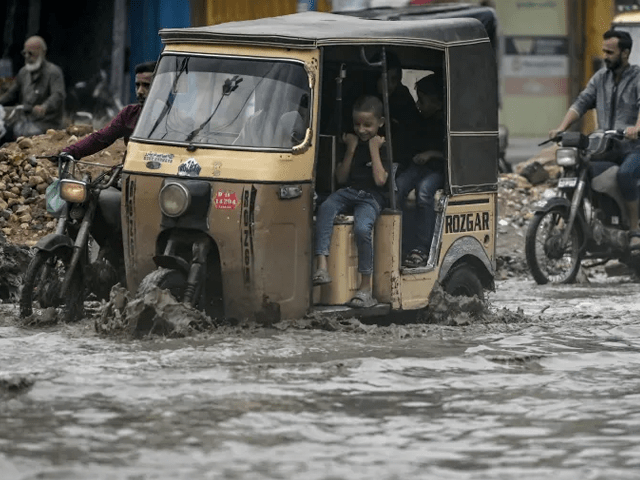The heavy rains and the sudden floods across Pakistan have killed 45 people in just a few days since the start of the monsoon season, disaster management managers announced on Sunday.
The highest toll was recorded in the province of Khyber-Pakhtunkhwa (KP) which borders Afghanistan, where 10 children were among 21 killed.
The disaster management authority said 14 of these victims died in the Swat valley, where the media reported a sudden flood swallowed families on a bank.
In Punjab, along the border with India, 13 deaths have been recorded since Wednesday. Eight of them were deceased children when walls or roofs collapsed during heavy rains, while adults were killed in sudden floods.
Also read: DC Swat deleted, four suspended officials
At least 11 other deaths linked to the Mosson showers were recorded in the Sindh and Balutchistan provinces. The National Meteorological Service warned that the risk of heavy rain and possible sudden floods will remain high until Saturday.
Last month, at least 32 people were killed in serious storms in the country, which experienced several extreme weather events in the spring, including strong hailstorms.
Pakistan is one of the most vulnerable countries in the world with the effects of climate change, and its 240 million residents are faced with extreme weather events with an increasing frequency.
In the meantime, tThe National Emergency Operation Center (NEOC), a wing of the National Disaster Management Authority (NDMA), has published multiple weather alerts as generalized rain, wind storms and thunderstorms are expected through the country from June 29 to July 5.
نیشنل ایمر How
29 جون سے 5 ج Rinکشمیر گلگت بلتستان ، اسلام آباد ، ،وٹھوہار: ایبٹ آباد ، مانسہ qu سلائیڈنگ ا park pic.twitter.com/d8apdzqoss
– NDMA Pakistan (@ndmapk) June 29, 2025
The Neoc has warned of urban floods, sudden floods and landslides in several regions, notably Islamabad, Kashmir, northeast of Punjab, the Potohar region and the Khyber Pakhtunkh upper and central. Lower areas in cities such as Peshawar, Rawalpindi and Islamabad can be particularly vulnerable between 9 p.m. and 4 a.m. on June 29.
Sudden floods and landslides are also possible in the Hazara and Malakand divisions, as well as in the Jhelum and Poonch valleys. The Swat and Kabul rivers can undergo low -at -low floods, while chitral and Hunza ice rivers have additional risks.
In southern Sindh, including Karachi, Hyderabad, Thitta and Badin, strong precipitation is expected from July 2, increasing the threat of urban floods.
Provincial and district authorities have been invited to remain on alert and ensure that precautionary measures and public warnings are effectively communicated.




